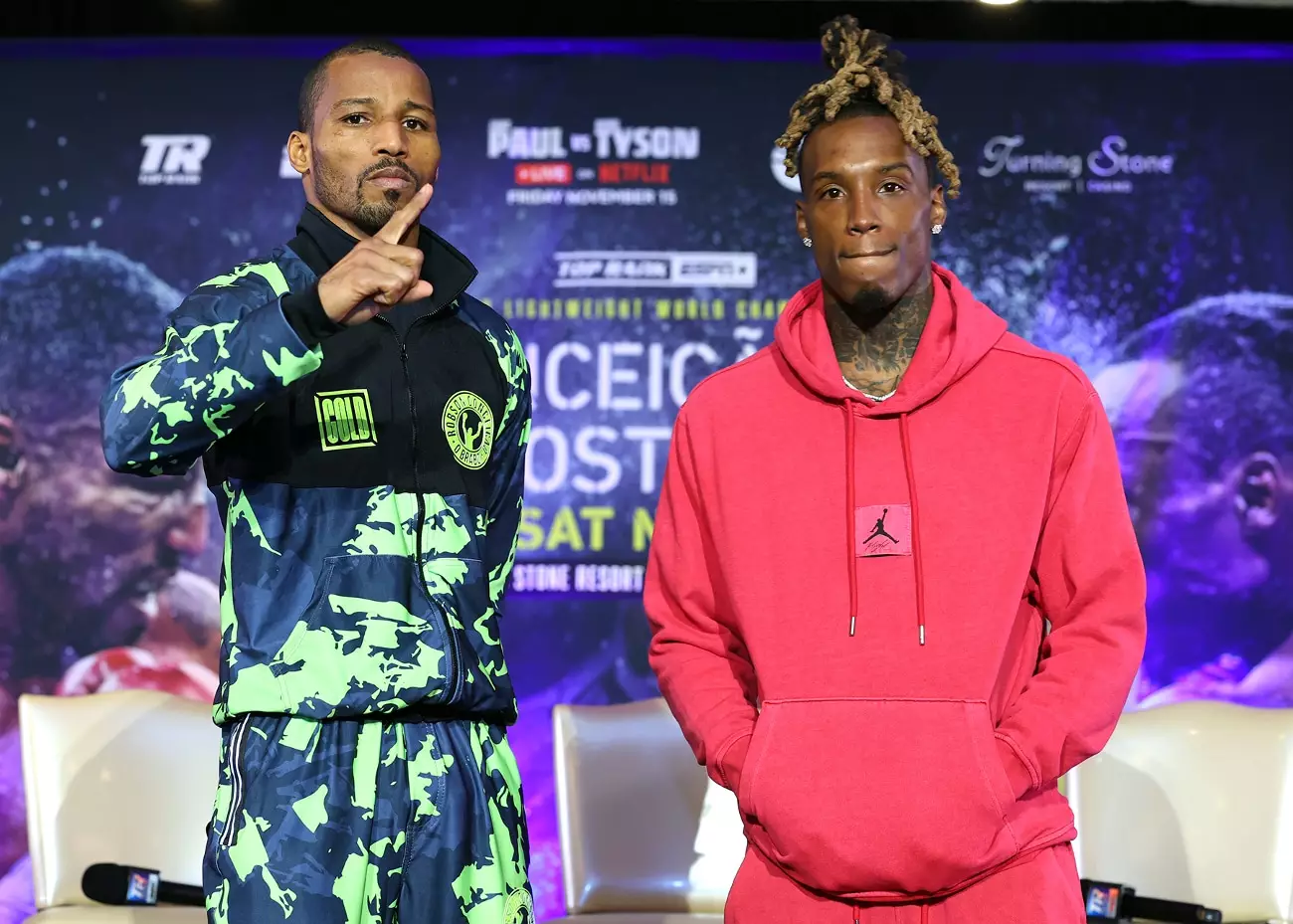In the world of boxing, the pressure to perform in rematches can be immense, particularly when a fighter’s reputation and aspirations hang in the balance. O’Shaquie Foster, set to face WBC super featherweight champion Robson Conceição once again on November 2nd, finds himself in just such a position. Following a split decision loss in their first bout, Foster must now confront the shortcomings that led to his defeat. This article will delve into his previous performance, his mentality post-fight, and the vital changes needed for him to reclaim his title.
Foster’s initial fight against Conceição showcased a fighter who was technically sound yet strategically hesitant. With an overall record of 22-3, including 12 knockouts, Foster relied heavily on his ability to avoid damage rather than engage actively with his opponent. His lack of offensive output was particularly detrimental in a matchup against a more aggressive Conceição, who effectively implemented a pressure-fighting style. Judges awarded victory to Conceição not merely for his striking accuracy but for his relentless forward motion and willingness to risk. Foster, while landing some clean punches, was outworked and outclassed, revealing a tactical error that is often fatal in professional boxing.
The rematch presents Foster not just with the opportunity to reclaim his title but also to redefine his identity in the ring. His comments following the first bout indicate a recognition of his need for change. Foster expressed intent to come into the rematch with a new strategy, emphasizing aggression and proactive engagement. However, this intention must translate into practice; words alone will not suffice if he continues to adopt a defensive approach. The upcoming fight will require a complete transformation, where he steps into the ring with confidence and determination—a stark contrast to the tentative stance that characterized their first encounter.
Compounding Foster’s challenges are his reactions to the loss. Notably, he has shown signs of being a sore loser, with complaints voiced through various media that may alienate potential supporters. His attitude post-defeat has raised eyebrows and may affect public perception. In boxing, humility and grace in defeat can garner respect and build a fanbase, but Foster’s overly emotional responses could limit his appeal. Acknowledging his missteps while maintaining professionalism could encourage a stronger connection with fans who like to see resilience rather than excuses.
As Foster prepares for what many have dubbed a make-or-break fight, he faces the critical task of not only evolving his fighting style but also reshaping his public persona. By showing grit, determination, and a willingness to learn from his previous mistakes, he can turn the tide in his favor. The pressure is on for Foster to embrace a more aggressive game plan and, concurrently, approach victory not merely as a means of reclaiming a title but as evidence of his growth as a fighter.
Foster’s journey represents the trials of an athlete seeking redemption. The rematch with Conceição is more than just about the WBC title—it’s about proving to himself, the fans, and the boxing world that he can rise from adversity stronger and better prepared.

